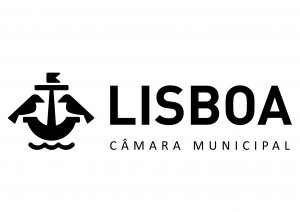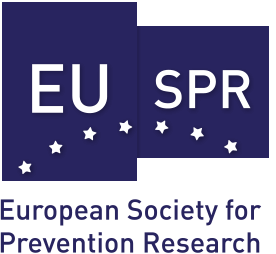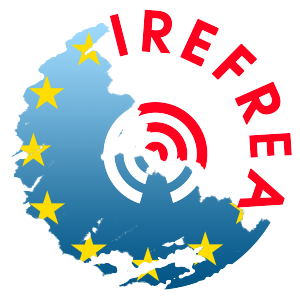Prevention Technologies – improving the use of evidence in prevention practice
Registration has now ended
Early Career Pre-conference workshopsOnline programmeHotels and TravelConference mealThings to do in LisbonMeet our keynotesEUSPR Knowledge ExchangeInstructions for presenters
Joining InstructionsConference programme EUSPR 2018 Participants List
 Translating research findings into prevention policy and practice remains a challenge, and despite the development of strategies to improve uptake, there is frequently a gap between research evidence and what is delivered. This wastes public resources, and means that target groups are unable to receive those interventions and other types of support that might be of most benefit to them. Reviews of evidence translation strategies have concluded that whilst passive approaches such as simply publishing research evidence are useful in raising awareness of effective prevention actions, these are ineffective in changing actual practice, and unlikely to result in improvements in outcomes for target groups. The uptake of research in practice is often related to the complexity of those research findings and ‘trialability’ in different contexts, whereby those findings that are difficult to implement, and cannot be tried out and evaluated at a local level are most likely to be ignored.
Translating research findings into prevention policy and practice remains a challenge, and despite the development of strategies to improve uptake, there is frequently a gap between research evidence and what is delivered. This wastes public resources, and means that target groups are unable to receive those interventions and other types of support that might be of most benefit to them. Reviews of evidence translation strategies have concluded that whilst passive approaches such as simply publishing research evidence are useful in raising awareness of effective prevention actions, these are ineffective in changing actual practice, and unlikely to result in improvements in outcomes for target groups. The uptake of research in practice is often related to the complexity of those research findings and ‘trialability’ in different contexts, whereby those findings that are difficult to implement, and cannot be tried out and evaluated at a local level are most likely to be ignored.
These gaps may be due to such factors as the complex realities and pressures of practice, the dynamics of the socio-political environments into which interventions will be delivered and sustained, the likely costs of affecting necessary changes in practice, or simply the failure of prevention researchers to produce evidence that is useful and relevant to these realities. Researchers and other producers of evidence need to move away from passive dissemination activities towards actions that acknowledge the importance of reciprocity between researchers, practitioners, policy makers, and target groups.
The increasing popularity of eHealth and mHealth programmes, for example, is promising because they can potentially be delivered directly to target groups, or indirectly via practitioners, at relativey low cost. However, this area is currently underdeveloped and more work is needed to understand relevant theory and mechansims, how they should be funded and delivered, and whether they are (cost) effective, acceptable, and increase intervention fidelity.
At EUSPR we will begin to address some of these challenges, and to offer some suggestions for ways forward. Our keynote speakers will explore some of the big questions in implementation and translational science, as well as providing focus on those strategies that have been successful in bringing together different members of the prevention community. A special focus of the conference will be the use of new technologies in this process, and how these might not only offer new opportunities for delivery of evidence based interventions and programmes, but also provide a platform for better engagement across different sectors
We encourage all of our presenters and attendees to ask:
- What do we know about how research evidence is used in the ‘real world’ of prevention? What kind of evidence is valued, and are researchers producing ‘useful’ evidence?
- Do we have examples of projects and strategies that have successfully demonstrated cross-disciplinary working between researchers and prevention professionals, from project conception to delivery?
- What are some of the biggest implementation challenges in prevention, and how do we address these?
- How might new (and old) technologies be used or optimised to better deliver preventive activities and to better engage target groups? What is the evidence-base for these approaches?
- How can we take advantage of technology to promote the use of evidence in policy and practice, whilst supporting diversity and innovation?
- What other types of innovations will help in the development of the prevention workforce (practitioners and researchers)? What are some of the key methodological and conceptual developments that will be required to further these ambitions?
- Can the use of technologies help save money and other resources in the development of interventions, undertaking research, and the scaling up of prevention activities?
EUSPR conferences attract a diverse group of participants from Europe and across the globe. In addition to academics and researchers, policy and decision makers, practitioners and prevention coordinators are well represented and will benefit from attendance. EUSPR is a friendly conference that is convened in the spirit of fostering collaborations, supporting new research projects, and exposing delegates to new ideas in prevention. Each year we have around 200-250 delegates, and this provides good opportunity to learn about a broad spectrum of work, whilst ensuring that the conference is not too large that there are programme scheduling conflict or too many ‘missed connections’.
We hope that you are able to join us at this year’s conference. Lisbon has played a central role in the history of the EUSPR, and hosts three public Universities and a number of European Agencies, including our collaborating partner, the EMCDDA. In addition to our scientific programme you are sure to enjoy your time in Lisbon; it is a popular holiday destination and has an international reputation for the quality of its galleries, restaurants, and heritage sites. This year we are planning a number of optional sightseeing and social events which will allow you to see a side of Lisbon that casual tourists often miss.
Programme
The full programme will be published in due course. Coffee breaks and lunches (lunch packs) are provided. Our popular informal social dinner will be held on 25th October, but must be booked separately (details to follow)
Abstracts
Abstract submission for EUSPR 2018 is now closed.
Venue
Plenary sessions will be held in the centre of Lisbon, at the EMSA-EMCDDA conference centre (Map). Please see this website for location. For those of you who have visited the EMCDDA before, then the venue is next door to their offices.
Praça Europa 4
Cais do Sodré
1249-206 LISBOA
Portugal
Additional pre-conference meetings and parallel sessions will take place at the European Monitoring Centre for Drugs and Drug Addiction (EMCDDA) located in the same campus (Praça Europa).
Co-organisers and collaborating organisations
We are very pleased that the 2018 conference is co-organised and supported by the European Monitoring Centre for Drugs and Drug Addiction (EMCDDA).
The conference proceeds in collaboration with the Public Health Institute (PHI) at Liverpool John Moores University, UK, and IREFREA Spain.
The pre-conference is sponsored by the Lisbon City Council.

Please subscribe at the following link to be added to the conference email list:



